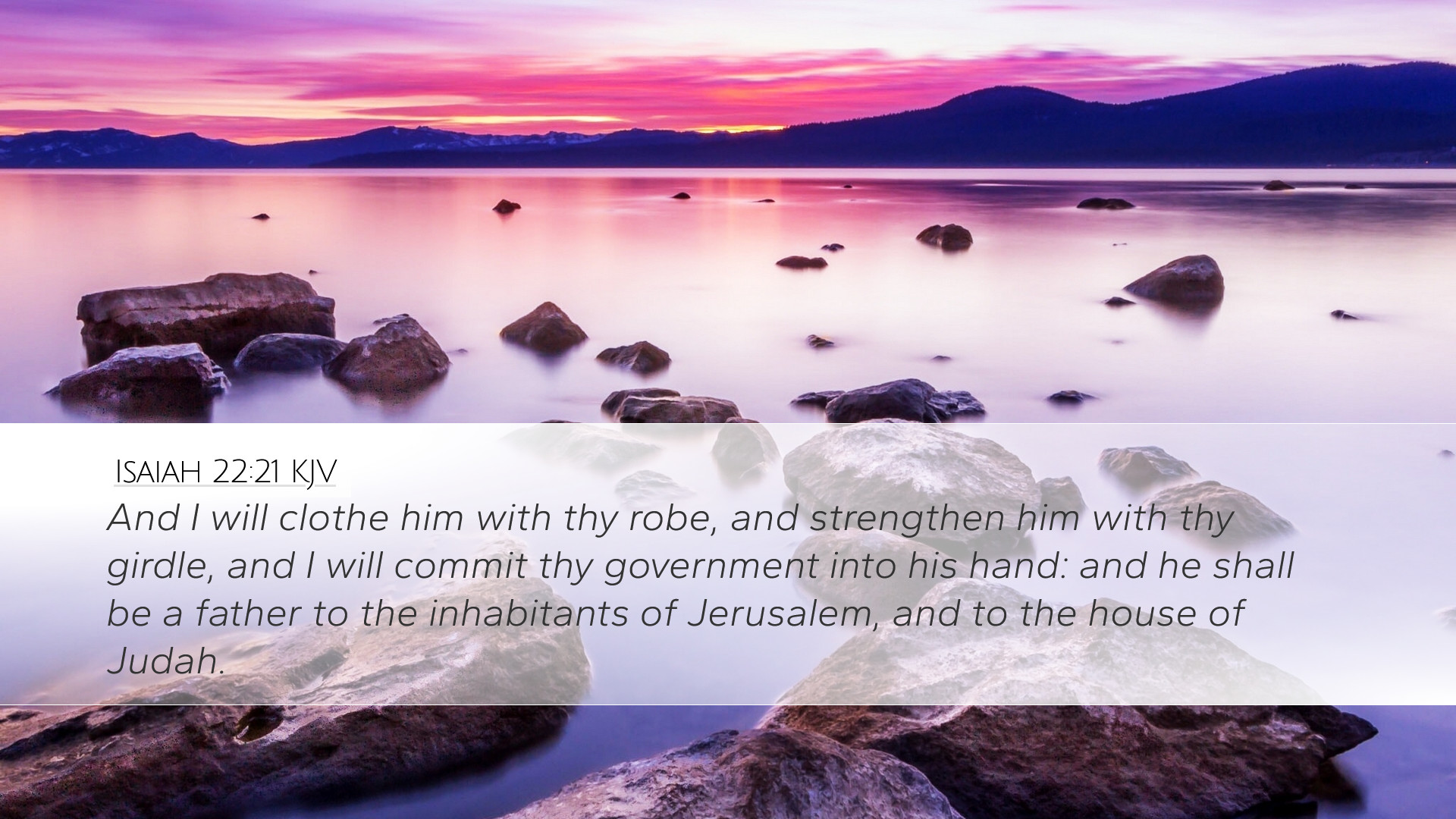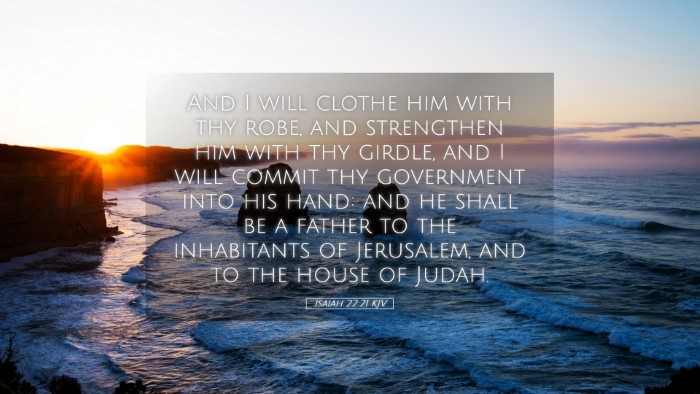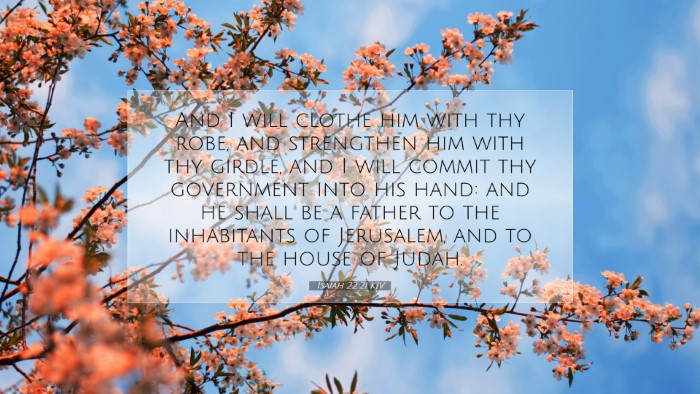Commentary on Isaiah 22:21
Isaiah 22:21 states: "And I will clothe him with thy robe, and strengthen him with thy girdle, and I will commit thy government into his hand: and he shall be a father to the inhabitants of Jerusalem, and to the house of Judah." This verse presents a significant moment in prophetic literature where God’s intention to appoint a faithful leader is revealed. The implications of this prophecy extend beyond its immediate context, resonating through the theological principles of leadership, divine authority, and covenantal relationships.
Historical Context
In understanding Isaiah 22:21, it is crucial to consider the historical backdrop of Isaiah’s ministry during the late 8th century BCE. During this period, Jerusalem was facing political turmoil and the threat of invasion from Assyria. The appointment of a new leader symbolizes hope for the people who were desperate for deliverance from both external enemies and internal corruption.
Theological Insights
- Divine Appointment: The phrase "I will clothe him with thy robe" suggests that the leader is chosen directly by God. Matthew Henry emphasizes that this clothing represents authority and dignity conferred upon the individual, much like the robes of a priest or king.
- Symbol of Strength: The "girdle" mentioned signifies strength and readiness for action. Albert Barnes points out that this imagery conveys the idea that the appointed individual will be equipped to govern wisely and effectively, highlighting God’s provision for His people.
- Fatherly Leadership: The statement "he shall be a father to the inhabitants of Jerusalem" signals the nature of the leader’s role. Adam Clarke notes that a true leader must embody care, protection, and guidance, reflecting the relational aspect of leadership in a covenant community.
- Governance Under God: The commitment of "government into his hand" encapsulates a central biblically-theological theme—leadership is a divine ordinance. Christian reflections on this verse echo throughout the New Testament, where Jesus embodies the ultimate fulfillment of divine kingship.
Interpretation of 'Robe' and 'Girdle'
These symbolic elements represent more than mere attire; they reflect the responsibilities and the moral qualities expected of any leader. Henry underscores that the robe indicates honor, and the girdle symbolizes the readiness and resilience required to undertake the weight of governing sighs. This dual symbolism serves as a narrative device encouraging leaders to rise to their God-given potential.
Application for Church Leadership
For pastors and church leaders today, Isaiah 22:21 challenges them to be attuned to both their calling and the conditions of their leadership. Just as the appointed leader was to care for the people of Jerusalem, modern leaders are called to shepherd their congregations with wisdom and grace, embodying the qualities of fatherhood as noted in the text. This passage prompts reflection on the inherent responsibilities of spiritual authority and the importance of divine guidance in exercising such roles.
Lessons on Authority and Governance
- The source of authority comes from God, and leaders must recognize their accountability to Him.
- Leadership in the church is not just about management but involves nurturing a community rooted in love and mutual support.
- God equips leaders for their roles, and their strength is derived from their alignment with His purpose.
Conclusion
Isaiah 22:21 resonates with timeless truths about God’s plan for leadership and community. The insights gleaned from this verse serve not only to inform but also to challenge contemporary Christian leaders to reflect on the weight of their call. There is a profound reminder of both authority and responsibility as divinely appointed stewards of God’s people. Moving forward, the leaders must integrate these truths into their pastoral practice, nurturing their congregations, and modeling the leadership that points ultimately to the eternal king—Jesus Christ.
Further Reflection
As we ponder Isaiah 22:21, let us also consider how this prophetic message can inform our understanding of ecclesiastical governance today, encouraging collaboration over hierarchies and a focus on spiritual vitality over mere administrative efficiency.


